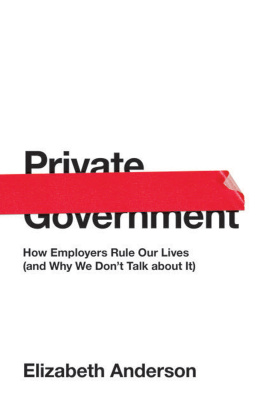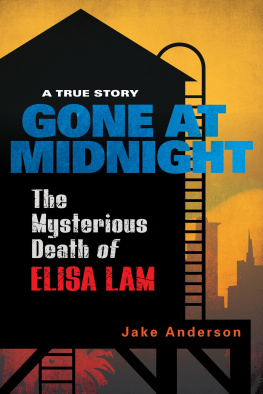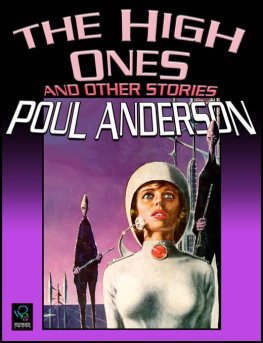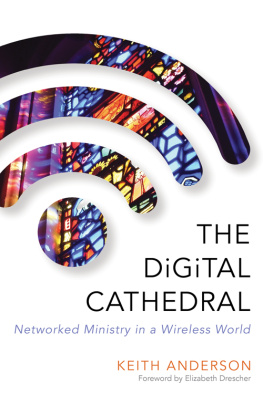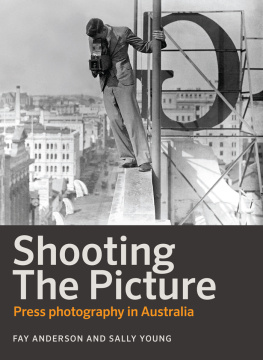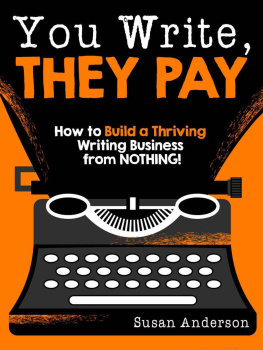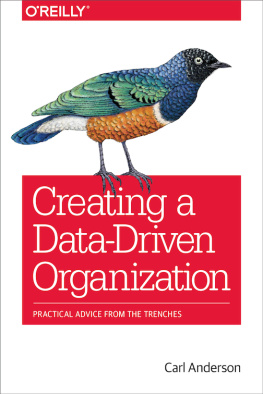Contents
Guide
DRIVEN TO DIGITAL DISTRACTION. Copyright 2016 by Porter Anderson. All rights reserved. No part of this book may be reproduced in any form or by any electronic or mechanical means, including information storage and retrieval systems, without permission in writing from the publisher, except by a reviewer, who may quote brief passages in a review. Published by Writers Digest Books, an imprint of F+W Media, Inc., 10151 Carver Road, Suite # 200, Blue Ash, OH 45242. (800) 289-0963. First edition.
For more resources for writers, visit www.writersdigest.com .
Driven to Digital Distraction
Why You Need to Deal with the Publishing Business
Porter Anderson
In the beginning was the Word, and the Word was with God, and the Word was God.
John 1:1, King James Bible
All authors ever since the beginning have needed to know about the business of publishing. This includes you.
Authors today need a Newer Testament, one that contains just two commandments:
- Thou shalt not hide from The Industry! The Industry! as I call our ever-excitable business.
- Thou shalt seize the digital tools and trade of tomorrow and thus prosper.
My father, the Methodist minister, always more theologian than pulpit pastor, would want me to tell you that the best verse in John 1 is this one: And the light shineth in the darkness; and the darkness comprehends it not.
God knows its hard for many authors to comprehend the benefits of the digital light that burns so blindingly into the farthest-flung reaches of modern publishing. Left to your own devices, you cant get a word in edgewise on your manuscript because the beepings and burpings, the pop-ups, the e-mails, the Facebook follies, the towering tweeterie, the lurid Instagrams, and the uninteresting Pinteresting all make you want to back the car over your smartphone and microwave your tablet.
But technology is not known for marching backward. That landline resurgence? Yeah, not so much.
And like the Lord, the digital dynamic gives and it takes away. Yes, it has taken away some of our ability to focus, to lose ourselves in the reverie of our words, to just write. It has also given us the power to know how many books were selling, converse directly with our readers, and monitor and understand the complex, staggered, and reinvigorated industry in which we work.
Publishing has now entered a state of continual change. That wont change.
In that change lies your best chance to succeed.
More and more, the token of professionalism among authors will be their knowledge of their industry. Whether you are trade or independent, sumptuously published or formatted on a shoestring, readers shall know you by your business savvy. Or they wont know you at all.
As Werner Erhard , founder of the est consciousness-training program, told us, its easier to ride the horse in the direction its going.
GO FORTH, AND MARKET THYSELF
In the beginning? The thundering beauty of the Book of John makes no reference to the holy literary agent, nor the celestial editor, nor the leather-and-gold-leaf cover design, nor the pearly royalty statements totted up by Saint Peter, nor even the Multitude of the Heavenly Host, to whom we refer today as Sales and Marketing.
But dont miss the fact that the Bible has been propelled into untouchable status as the planetary bestseller by the most successful word-of-mouth campaign in heaven and Earth. A mighty street team is Christianity.
The Wycliffe Global Alliance of Bible translation organizations reports that there are 554 versions of the complete Bible, with scriptures available in some 2,932 languages. And yet Wycliffe also tells us that in the Bibles success, God is accomplishing His mission through His power and through partnership.
Partnership? You bet. Even His Holiness, Pope Francis, turned to the earthly powers of a publisher for his own first book project. Pan Macmillans Bluebird imprint announced late in 2015 that it had secured the U.K. and Commonwealth rights to Oonagh Stranskys translation of the Popes The Name of God Is Mercy. And there was much rejoicing in the boardroom, too. (Random House brought it out in the United States.)
And yet, on a day-to-day basis, you hear pushback on all sides from authors who hate marketing. They blanch if you say the words author platform. They waste precious writing time participating in blog gossip fests about how hard it is to sell yourself. Quiz those folks gently. Youll find that these are usually the same authors who are embarrassingly clueless on industry issues that affect their work and their livelihoods. They send you long-outdated blog posts from amateurs to prove a point. They tweet incessantly about their booksto other writers but not readers. They dash awaymy Love in the Backyard is calling!as if youre supposed to (a) know the title of their work-in-progress and (b) give a damn.
Please chant it now with me, the call of the amateur: I just want to write. Thats actually an excellent mantra. If youre a hobbyist.
If you want to sell the stuff, read on.
Ironically, business avoidance may be more pronounced today, in our so-commercial era, than in the past. Think of how much mythology gets passed around about back in the day, when publishers were publishers and marketing departments jetted authors around for well-managed book tours on flying carpets of full-page ads in the Times. Right?
Wrong. The cult of I just want to write is all ours. More than five hundred years of authorati have known that they lived or died in the Kasbah, not in those sylvan Maxfield Parrish temples of androgynous creativity with the tall pillars and see-through togas.
Capitalism per se and the market forces that both animate and pre-suppose it arent the problem, writes publishing entrepreneur Richard Nash in his masterful The Business of Literature . They are, in fact, what brought literature and the author into being.
In the beginning, Nash tells us, meaning before Gutenberg invented the you-know-what:
The role of the writer was simply to transcribe Writers were not thought leaders, conjurors of other worlds, conjoiners of emotion and aesthetic. Writers were the machines through which the word of God was reproduced and disseminated The writer was the printing press.
Indeed, it was thought in the mid-1400s that the advent of the Gutenberg press would be an economic disaster for the writer, Nash tells us. But in fact, The supply of writers in no way withered, Nash writes. The sixteenth-century printers shops became magnets for people with something to say, as would the eighteenth-century coffeehouses that followed.
CLASS UP YOUR ACT WITH SOME BUSINESS SAVVY
Writer Unboxed contributor Jane Friedman, in her keynote address at the 2014 Grub Street conference, The Muse and the Marketplace , reminds us that Dickens was a tireless businessman. (Serials, right?) And she reminds us that Mark Twain made more money from the lecture circuit than from his books. Would that man have loved TED Talks or what?
It gets better: Twain had subscription agents going door-to-door to sell his books. The Morgan Library & Museum included one of the sample cases these front-porch sweet talkers used to tote Twains writerly wares up and down the streets of America. Maybe you think you know Twains writings, but its not all river rafting and fence painting. Ill bet youve overlooked The Successful Agent , 1865, which contains his instructions to the sales team:
Keep the Book in Your Own Hands. Possession is power. Surrender the book, and you lose the power of showing it Books are seldom bought for what they are as a whole, but for some


